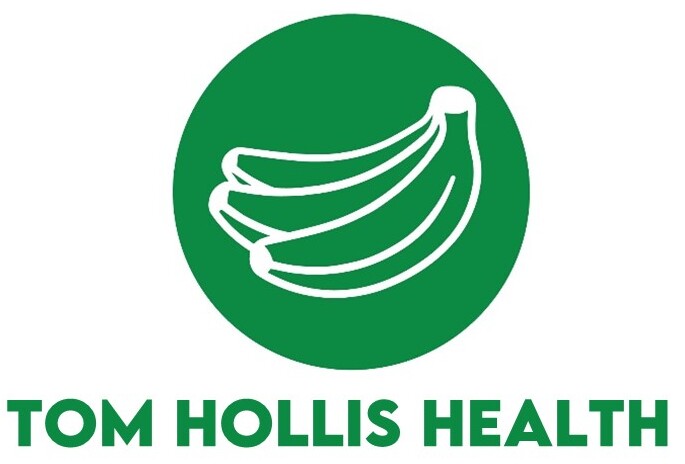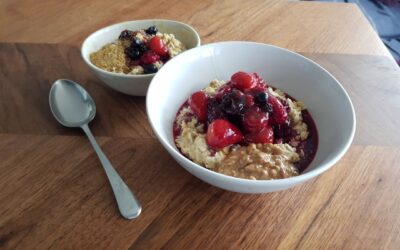There is one section of every supermarket and corner shop that is unrecognisable from ten years ago: plant-based milks. Or ‘mylks’, ‘m*lks’, or sometimes, confusingly, just ‘drinks’.
I’m going with ‘milks’, partly for simplicity and partly because it amuses me that this offends some people. Terminology aside, one thing not in question is their unstoppable rise in popularity. Ethical and environmental concerns, dairy allergies and intolerances, and health considerations are all contributing factors here. Anecdotally, I’ve also noticed that friends and family find plant-based milks an appealing option even if they have no intention of going vegan or vegetarian.
The breadth of choice out there is vast, and everyone’s taste buds are slightly different, but beyond this there are some other important considerations and tips that can help guide your choice – especially if you assume or expect plant-based milks to do exactly the same job as dairy milk.
- Think soya for protein content
Plant based milks do not have the same nutrient profile as cow’s milk. The macro proportions vary quite significantly between each variety, but none match the protein content (approx. 3.5g/100ml) of cow’s milk. The only one that comes close on this front is soya milk (2.5-3g/100ml), so it’s the option that I recommend for most of my athlete and vegan clients for whom protein is an important consideration. Of the other major plant players, oat comes next with about 1-1.5g/100ml, whereas the protein content of almond (0.5g/100ml) and coconut (0.1g/100ml), for example, is negligible.
- Sweetened or unsweetened?
Most brands come with sweetened or unsweetened varieties. Of course, personal taste preference plays a role here, but beyond that, my recommendation would be based on what type of client you are and when you’ll be having the milk. If you’re a runner or cyclist that struggles to meet the high carbohydrate demands of your training, then the sweetened option can be sensible, especially if you’ll be drinking it during key training windows. However, in the general population, we over-consume sugar, so I would generally recommend the unsweetened option if you find this palatable (I much prefer it).
- Don’t go organic (but do shake)
This is an important one. Despite the health halo surrounding the organic label, there are times when it is best ignored. Organic foods in the UK cannot be fortified with vitamins and minerals unless such fortification is a legal requirement in that product (which does not apply to plant milks). The vast majority of non-organic plant milks do now contain added vitamins and minerals, making them an incredibly useful source of these micronutrients, especially for those on stricter plant-based diets where risk of deficiencies is much higher and good quality food sources are harder to find. Calcium, vitamin D and vitamin B12 are the most common fortification examples, but the list, helpfully, is starting to grow.
Sub-tip: make sure you always shake the carton before use, as the added ingredients (especially calcium) can otherwise settle at the bottom.
- Look for iodine
The above tip on fortification brings me neatly on to iodine. Iodine is essential for thyroid hormone production and foetal brain development, but deficiency is common, especially in strict plant-based diets, since dairy and seafood are the most reliable dietary sources. Good plant-based sources are harder to find, with the notable exception of seaweed. However, the iodine content of seaweed varies massively and can also be excessive and lead to toxicity issues. Fortified foods therefore play a key role, and plant-based milks are just starting to recognise this and lead the way. Look for ‘potassium iodate’ or ‘potassium iodide’ on the label.
- Not all plant-based milks are created (environmentally) equal
The dairy industry is an environmental nightmare, so any switch from cow’s milk to plant-based milk is going to be helpful on this front. However, as with all ethical debates, there are plenty of nuances that should be considered, especially if climate change and the environment in general are your main drivers for steering clear of dairy.
The three key components are greenhouse gas (GHG) emissions, water use, and land use. At a global level, cow’s milk is 3-4 times worse than each of the major plant options for GHG emissions, and 10-20 times worse than plant milks for land use. For water use, there’s much more variability within the plant milk sector, with almond and rice milks requiring 5-10 times the amount of water of oat or soya milk production (but still only half as much as cow’s milk). These are global averages, and numbers will vary from country to country (and climate to climate). Cow’s milk production in the UK, for example, is heavily reliant on rainwater and therefore water use is not a major factor. There are other considerations that I won’t even scratch the surface of here, but if this issue is as important for you as it is for me, do your research!
- Practical issues and the curdling conundrum
Plant-based milks have some massive practical advantages – not least the fact they can be stored at room temperature before being opened, and keep for far longer than cow’s milk in the fridge after opening.
However…the elephant in the room is the curdling conundrum. Anyone who’s dabbled with plant milks will have experienced this when adding to teas, and especially to coffees. I find it weirdly unpredictable and therefore it often catches me off guard. It doesn’t affect the flavour of the drink, but it’s not nice to look at. I’ve tried doing my research, and it seems it’s a combination of heat and acidity that causes the curdling. There are a few tactics out there such as heating the milk, and / or adding it to the cup first before slowly adding the coffee, but to be honest, the only thing I’ve found consistently reliable on this front is choosing one of the ‘barista’ varieties. If anyone has any tips that I’m missing, though, please let me know!





0 Comments